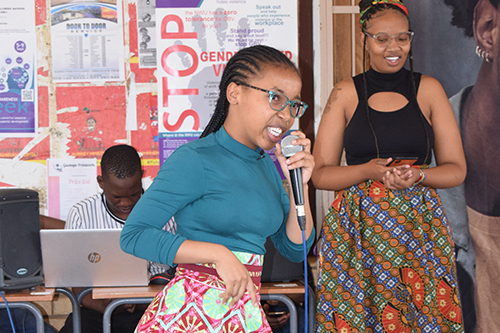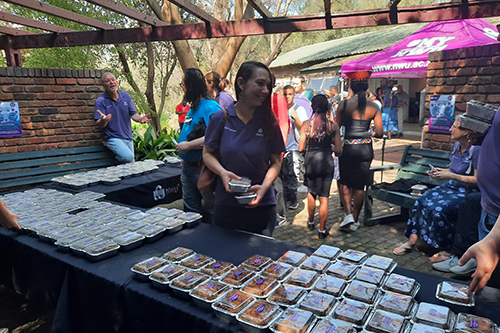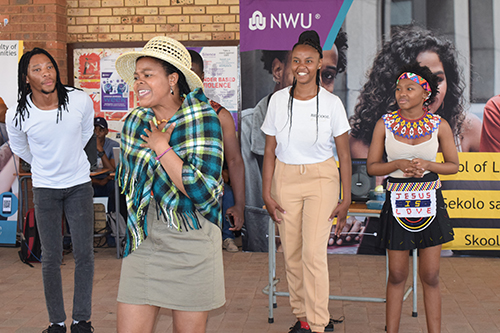By Angeline Marokoane and Ontiretse Motingwa
This annual event takes place across campuses, and aims to showcase the NWU's cultural diversity, to broaden horizons, to strengthen respect for each other, and to enable the renewal of ideas. This year’s theme was “Multilingualism: a powerful resource for inclusion and academic development”.
“Language Awareness Week aims to create awareness of the importance of using our official languages as resources in higher education institutions, rather than viewing them as problems,” says Dr Keaobaka Seshoka, director of the university’s Language Directorate.
According to Dr Seshoka, the celebration of LAW is important as it creates awareness about multilingualism and language-related issues at the university. “The focus is on celebrating different languages represented across NWU campuses and showcasing the various language-related developments.”
Different activities took place across the NWU, and each campus honoured the week with multilingual singing performances from the residences, film and poetry nights, theatre performances, and basic beginner-level language and Sign Language classes. As September is Heritage Month, a befitting South African-style cultural food feast also took place.
A highlight of the week was the colloquium discussion on the LAW theme with Professor Langa Khumalo, the executive director of the South African Centre for Digital Language Resources (SADiLaR).
Dr Seshoka says it was a great success. “As proud hosts of Language Awareness Week 2022, the Language Directorate is aware of how identity and language interrelate, and it was a rewarding and humbling experience to witness the vibrant and rich diversity of multilingualism within the NWU.
“We greatly appreciate all our NWU stakeholders, including SADiLaR and the North West Provincial Language Committee, their participation and involvement.”
.jpg)
Dr Kea Seshoka, director of the NWU’s Language Directorate, officially opens Language Awareness Week.
More insights on LAW from the School of Languages by Ontiretse Motingwa
Supporting multilingualism in the classroom can be a useful pedagogical practice that benefits students' academic performance and social and emotional wellbeing, according to Anele Gobodwana, lecturer of language education in the School of Languages on the NWU’s Potchefstroom Campus. "Using multilingual approaches to teaching and learning is the most critical aspect of the NWU language policy," he says.
They recognised the advancements made in multilingual learning at the NWU while educating everyone about the benefits and drawbacks of using technology to support multilingual education.
As part of the event, Bosatla Medupe, a student at the NWU, performed poetry while the NWU Drama Society put on a play. The importance of communication and establishing connections with people from various cultures, histories, and languages was stressed in all these performances.
They emphasised the many benefits of education and a desire to learn from one another, the importance of solid relationships fostered by language proficiency, and the fact that no language is superior to any other.
"The organising committee and I are really proud to state that the week went exactly as planned, and that every significant facet of multilingualism was clearly covered in our colloquium,” Anele adds.

Bosatla Medupe shares her love for poetry

A South African-style cultural food feast

A performance by the NWU Drama Society
